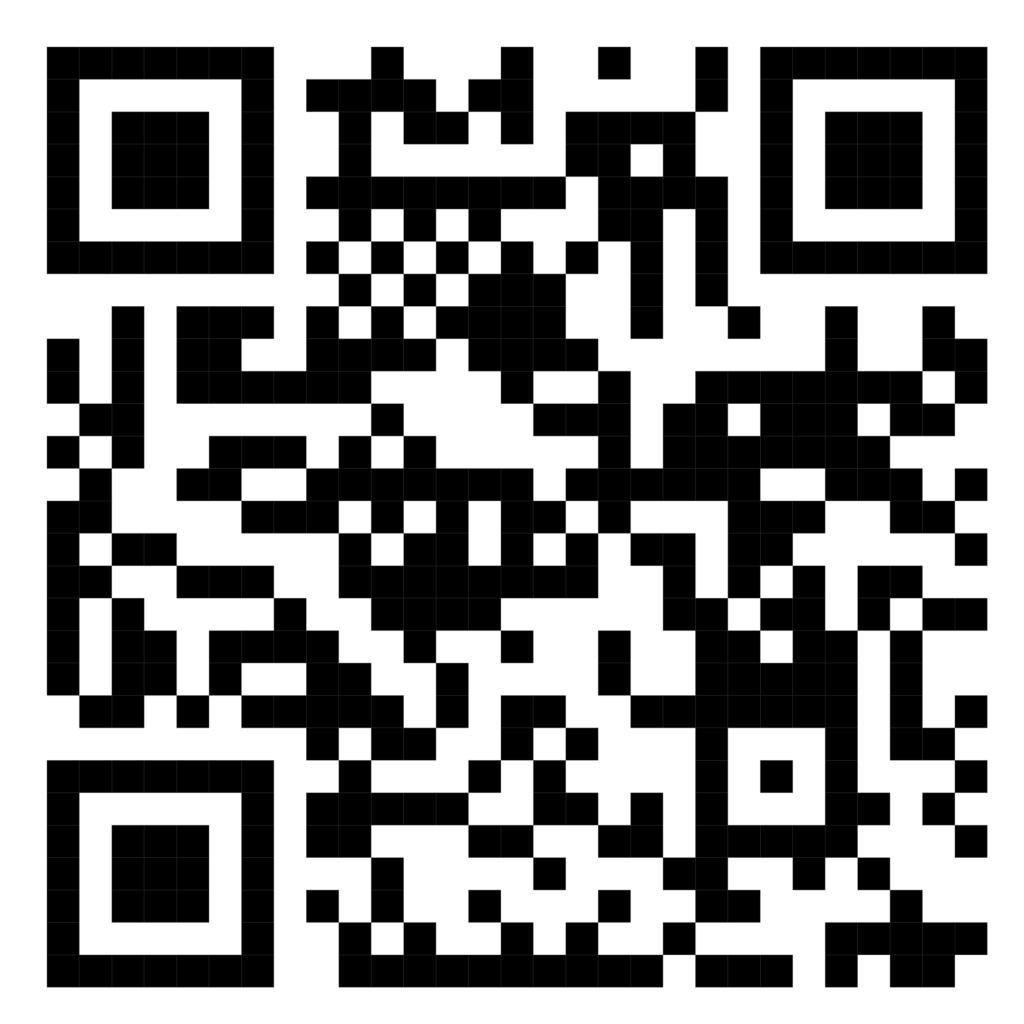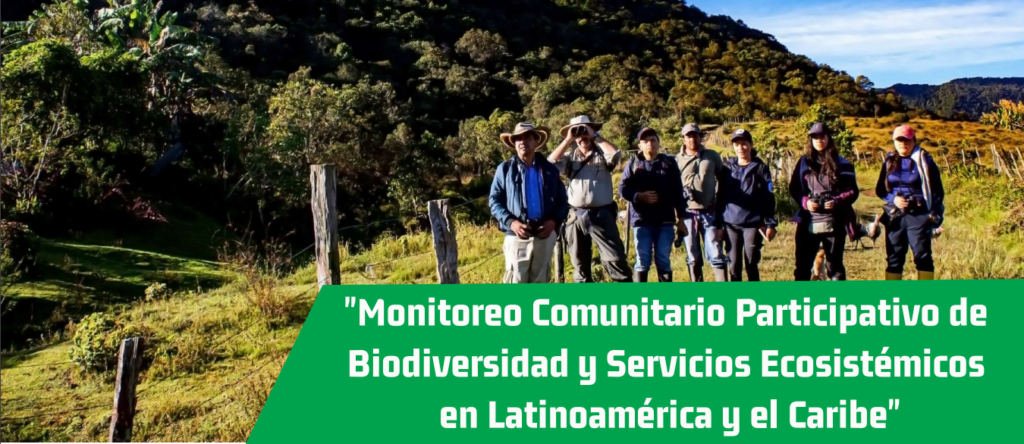The third edition of the ESP Education & Training Webinar Series, organised by the Young Ecosystem Services Specialist Network – YESS, will be on the topic of Participative Community Monitoring of Biodiversity and Ecosystems Services in Latin America and the Caribbean. The session is planned as a space to share significant advances and experiences in participatory science exercises and self-managed monitoring of ecosystem, developed by rural communities, indigenous communities, African descendants, ethnic groups, etc., in which early-career researchers (ECRs) tend to be advisors and accompaniers.
The webinar will take place on 26 April 2023. The language for this webinar is Spanish.
Download the flyer for more information.
Below the webinar description in Spanish. For English scroll down.
Monitoreo Comunitario Participativo de Biodiversidad y Servicios Ecosistémicos en Latinoamérica y el Caribe
“MCP en LAC”
Presentación
En el marco del tercer ciclo de webinarios del ESP Education & Training, el Young Ecosystem Services Specialist Network – YESS propone la sesión: “Monitoreo Comunitario Participativo de Biodiversidad y Servicios Ecosistémicos en Latinoamérica y el Caribe” como un espacio para compartir avances y experiencias significativas en ejercicios de ciencia participativa y monitoreo autogestionado de ecosistemas, desarrollada por comunidades rurales, indígenas, afrodescendientes, étnicas, etc., en los que los investigadores de carrera temprana (ECR) suelen ser asesores y acompañantes.
Objetivos
- Generar un espacio para compartir avances y experiencias significativas en ejercicios de ciencia participativa desarrollada y monitoreo autogestionado de ecosistemas por comunidades rurales, indígenas, afrodescendientes, étnicas, etc., en los que los investigadores de carrera temprana (ECR) son asesores y acompañantes.
- Reevaluar el papel de la disciplina de los Servicios Ecosistémicos en la reducción de la brecha ciencia – sociedad, más allá de hacer explícitas las contribuciones de la naturaleza para las personas.
- Discutir sobre el potencial que tiene el ejercicio de monitoreo comunitario participativo en la solución de conflictos ambientales y la mejora de la calidad de vida de las comunidades rurales, indígenas, afrodescendientes, étnicas, etc.
- Divulgar y dar apertura a la recepción de trabajos de investigación relacionados a la sesión “Experiencias de monitoreo comunitario participativo de biodiversidad y servicios ecosistémicos en Latinoamérica y el Caribe” de la ESP Latin America and Caribbeans Conference, a realizarse en noviembre de 2023
Preguntas
- ¿Cuál ha sido su experiencia personal frente las prácticas de “neocolonialismo científico” o “extractivismo de conocimiento”?
- ¿Cuál es el potencial que tiene el ejercicio de monitoreo comunitario participativo en la mejora de la calidad de vida de las comunidades rurales, indígenas, afrodescendientes, étnicas, etc.?
- ¿Cuál debería ser el papel de la disciplina de los Servicios Ecosistémicos en la reducción de la brecha ciencia – sociedad, especialmente la sociedad no urbana?
Audiencia
- Jóvenes de carrera temprana en la disciplina de los Servicios Ecosistémicos de Latinoamérica y el Caribe.
- Estudiantes y docentes universitarios de todos los niveles.
- Organizaciones comunitarias que estén iniciando o tengan un proyecto de monitoreo comunitario participativo.
- Comunidad hispanohablante en general.
Invitadas
Everildys Córdoba Borja es la representante legal de Consejo Comunitario de las comunidades Negras de la Cuenca del Río Tolo y Zona Costera Sur, ha dedicado su vida y lucha a la conservación de su territorio, al fortalecimiento organizativo y de la gobernanza de su comunidad a través de diversas estrategias entre las que se destacan el monitoreo comunitario, la tecnificación del conocimiento comunitario y la formación de las nuevas generaciones. Vive en la comunidad de Peñaloza a la orilla del río Tolo y junto al bosque del Corredor de Conservación Chocó Darién.
Rosalba Quintana Bustamante es doctora en Antropología por el Centro de Investigaciones y Estudios Superiores en Antropología Social (CIESAS-Ciudad de Mexico), maestra en Antropología por la Universidad Veracruzana y licenciada en Estudios Latinoamericanos por la UNAM. Actualmente se desempeña como docente a nivel licenciatura y posgrado en la Universidad Autónoma de la Ciudad de México y en CIESAS-CDMX. Formo parte de la Red de Estudios Sociales sobre el Medio Ambiente, y he publicado y participado en diferentes espacios de divulgación y difusión del conocimiento. Sus intereses de investigación-acción son la ecología política de la conservación ambiental, la crítica posthumanista y antiespecista, la decolonialidad ontológica de la naturaleza, la mercantilización turística de recursos naturales, los conflictos ambientales y la defensa anticapitalista del territorio y la naturaleza.
Lorena Ortiz Melo es Bióloga, Magíster en Desarrollo Regional y Planificación del territorio. Investigadora Grupo de Investigación Competitividad, Innovación y Desarrollo Empresarial-CIDE. Tiene más de 12 años de experiencia en Gestión de la biodiversidad y los servicios ecosistémicos. Conservación comunitaria de bosques y páramos (con pueblos campesinos, afrodescendientes e indígenas en el territorio colombiano). Fortalecimiento de capacidades para fomentar alternativas en Bioeconomía. Procesos de articulación de Monitoreo comunitario participativo. Caracterización de causas y agentes de transformación. Procesos de transición energética justa. Desarrollo e implementación de proyectos de carbono, entre otros.
Modera: Albaluz Ramos Franco, Miembro del equipo ejecutivo del Young Ecosystem Services Specialist Network YESS

Participative Community Monitoring of Biodiversity and Ecosystems Services in Latin America and the Caribbean
In the framework of the third cycle of ESP Education & Training webinars, the Young Ecosystem Services Specialist Network – YESS proposes the session: “Participative Community Monitoring of Biodiversity and Ecosystems Services in Latin America and the Caribbean” as a space to share significant advances and experiences in participatory science exercises and self-managed monitoring of ecosystem, developed by rural, indigenous, African descendants, ethnic, etc., in which early-career researchers (ECRs) tend to be advisors and accompaniers.
Goals and objectives of the webinar
- Generate a space for sharing significant advances and experiences in participatory science exercises developed and self-managed monitoring of ecosystems by rural, indigenous, African, ethnic, etc. communities, in which early-career researchers (ECRs) are advisors and accompaniers.
- Re-evaluate the role of the discipline of ecosystem services in reducing the gap between science and society, beyond making explicit the contributions of nature to people.
- Discuss the potential of participatory community monitoring in resolving environmental conflicts and improving the quality of life of rural, indigenous, African, ethnic, etc. communities.
- Disclose and open the reception of research works related to the session “Experiences of participatory community monitoring of biodiversity and ecosystem services in Latin America and the Caribbean” of the ESP Latin America & Caribbeans Conference, to be held in November 2023
Guiding Questions
- What has been your personal experience with the practices of “scientific neocolonialism” or “knowledge extractivism”?
- What is the potential of participatory community monitoring in improving the quality of life of rural, indigenous, African, ethnic, etc. communities?
- What should be the role of the discipline of ecosystem services in reducing the gap between science and society, especially non-urban society
Audience
- Early career youth in the discipline of Latin America and the Caribbean Ecosystem Services.
- Students and teachers of all levels.
- Community organizations that are initiating or have a participatory community monitoring project.
- Spanish speaking in general.
Speakers
Everildys Córdoba Borja is the legal representative of the Community Council of the Afro-descendants communities of the Fool River Basin and South Coast Zone, has dedicated her life and struggle to the conservation of her territory, to the strengthening of organizational and governance of her community through various strategies, among which stand out community monitoring, the tecnification of community knowledge and the formation of the new generations. She lives in the community of Peñaloza on the banks of the River Tolo and next to the forest of the Conservation Corridor Chocó Darién.
Rosalba Quintana Bustamante holds a PhD in Anthropology from the Center for Research and Higher Studies in Social Anthropology (CIESAS-City of Mexico), a Master in Antropology from the University of Veracruz and a licensed in Latin American Studies from the UNAM. He currently works as a graduate and postgraduate teacher at the Autonomous University of Mexico City and CIESAS-CDMX. It is part of the Network of Social Studies on the Environment, and I have published and participated in different spaces of dissemination and diffusion of knowledge. Her research-action interests are the political ecology of environmental conservation, the post-humanist and anti-specist criticism, the ontological decoloniality of nature, the tourist mercantilization of natural resources, environmental conflicts and the anti-capitalist defense of territory and nature.
Lorena Ortiz Melo is a Biologist, Master in Regional Development and Territorial Planning. Research Group Competitiveness, Innovation and Business Development-CIDE. He has more than 12 years of experience in the Management of biodiversity and ecosystem services. Community conservation of forests and params (with peasant, African and indigenous peoples in the Colombian territory). Strengthening capacities to foster alternatives in bioeconomy. Participatory Community Monitoring. Identification of causes and agents of transformation. Fair energy transition processes. Development and implementation of carbon projects, among others.
Moderator: Albaluz Ramos Franco, Member of the Executive Team of the Young Ecosystem Services Specialist Network YESS


